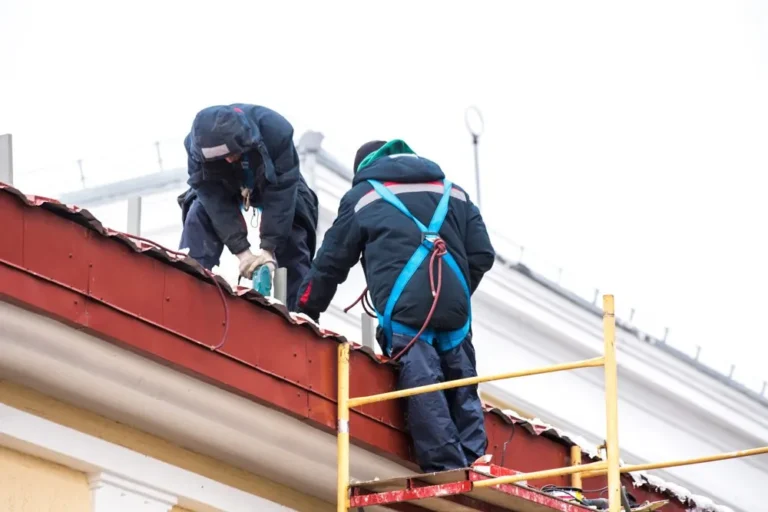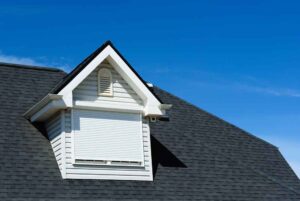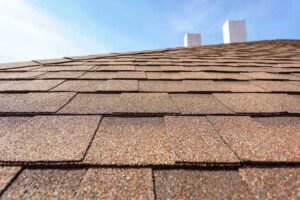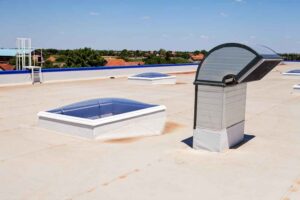Are you having a hard time choosing the best commercial roofing system? With all the commercial roofing types available in the market, it’s understandable that you’re confused.
The roof is not just a significant investment, but the first line of defense for your building against the elements.
Each commercial roofing system has its pros and cons, and you have to weigh your options depending on what suits your building and your budget.
To help you out, we have outlined the different types of commercial roofs and their pros and cons in a comprehensive guide. This will help you make an informed decision about the best model for your commercial building in Houston.

1. PVC Commercial Roofs
PVC or polyvinyl chloride commercial roofs are single-ply and heat-welded commercial roofing systems that have been around for decades. This type of roof is not only durable but flexible and can come fully adhered or mechanically fastened.
One of the best things about this roof is that it has excellent abilities when it comes to resisting rooftop oils, greases, chemicals, and other industrial by-products.
The Pros
- Could last as long as 35 years or more
- Fire resistant
- Available in custom colors
- Bacteria and fungi resistant
- Highly reflective
- Easy to clean
- Best for buildings with grease traps such as restaurants
The Cons
PVC roofs tend to shrink over time, and it’s incompatible with asphalt. During installation, you’ll have to remove asphalt products completely or use separator sheets so you can prevent premature aging.
2. TPO Commercial Roofs
TPO or thermoplastic polyolefin commercial roofing systems are the most common systems in Houston and beyond.
This type of roof is a flexible single-ply membrane that comes fully adhered or mechanically attached as well. It’s usually white and made of filler bend or polymer, which is a rubber compound.
TPO roofing systems come in different thickness levels, and some models feature a fleece backing so you can install over an abrasive surface.
The Pros
One of the best things about TPO commercial roofs is how reflective they are. This means that it’ll keep your commercial building cool during summer, decreasing both your energy use and carbon emissions.
It’s also flexible enough for easy shaping around the details and maintains integrity, even during movement. Beyond that, it’s:
- Non-toxic
- Easy to install
- Long-lasting
- Sustainable
- Membranes are heat welded to create used seams, which are super durable
The Cons
Given that TPOs are single-ply membranes, they are quite vulnerable to rooftop activities and punctures.
Cheap TPO roofs can be especially vulnerable, and if punctured in areas where water ponds are, you may have leaks in your building. Beyond that, this type of roof shrinks over time.
3. EPDM Commercial Roofs
EPDM or ethylene propylene Diene Terpolymer commercial roofing systems are more popular for low-slope roofs. This type of roof is highly resistant as it’s made from durable synthetic rubber from two ingredients, which are propylene and ethylene.
The roofing membranes could be black or white, they range in thickness and widths and can be glued, or fully adhered, ballasted, or mechanically attached.
The Pros
- EPDM commercial roofing systems are resilient and can last as long as 30 years
- Available in ultra-wide sheets
- Resistant to hail damage
- Resistant to thermal shock
- Can withstand UV radiation
- Adapts to structural movement
The Cons
This type of roof should not be installed with asphalt or come in contact with asphalt products. It requires clean and dry installation conditions or may be susceptible to leaks, and chemical reactions between the adhesives and materials could lead to blistering. If you choose a black EPDM roof, then it’ll absorb heat and contribute to your energy bills.
4. Metal Commercial Roofing Systems
Metal commercial roofing systems are some of the most common in Houston and for good reasons. To begin with, metal roofs are made from different types of metals, from zinc to aluminum, galvanized steel, stainless steel, and copper.
These materials can be combined and coated or covered to protect the metal from corrosion, weather, and the sun.
Metal roof designs are impacted by the roof slope, architectural features, and roof penetrations.
The Pros
- Long-lasting (up to 50 years or longer)
- Combined with substrate insulation to meet energy code requirements
- Low life cycle costs
- Vast array to choose from
- Reduced carbon footprint
- Minimal maintenance
- Recyclable and hence eco-friendly
The Cons
Most metal roof problems highly depend on the metal combinations used and the quality of installation. Depending on temperature fluctuations, the roof may be susceptible to oil canning and bending.
Proper planning and maintenance may prevent these issues, though. Beyond that, metal roofs are slippery and not the best option for walking on or for roofs with skylights and penetrations such as vents.
5. Asphalt Commercial Roofing Systems
Asphalt is also common, especially for commercial flat and low-slope roofing.
This roof type works well and is super durable, making it a great option. Asphalt roofs have several layers, which are weatherproofing, reinforcement, and protective layers.
Asphalt roofs fall into two categories, which are Modified Bitumen Systems and Built-Up Roofing.
You may also integrate asphalt with different materials, such as fiberglass, gravel surfacing, copper, aluminum, and bitumen.
The Pros
- Affordable
- Exceptional performance
- Uplift protection
- Multi-layer protection
- Easy maintenance
- UV protection
- A vast array of options to choose from
The Cons
Asphalt roofing systems are not suitable for all types of commercial buildings because installation gets very tricky. You need specialized equipment and very skilled professionals to pull it off.
Built-Up Roofing systems are constructed with hot asphalt, and it must be set before it cools off. Modified Bitumen Systems are installed using open-flame welding, making it tricky.
6. Tile and Slate Commercial Roofing Systems
Slate and tile roofs are considered some of the best in the market. Would you believe they come with a life expectancy of up to 150 years? Impressive, right?
Natural slate comes in a wide array of colors, grains and thicknesses and tiles vary in terms of color and finishes.
Synthetic materials, on the other hand, may look similar to natural materials, but they are more affordable.
Synthetic slate and tiles could last as long as 50 years as they are made from composite materials such as plastic or rubber and concrete or polymer, respectively.
The Pros
- Slate and tiles provide great value
- Sustainable
- Low maintenance
- Easy to clean and reuse
- Recyclable
- Energy efficient
- High performance
The Cons
- Very delicate during installation
- High initial costs
- Takes long to replace or repair
- Access for maintenance can be tricky
- Little cracks could lead to damages within just a few years
The Best Commercial Roofing System
These are the various types of commercial roofing systems available in the market. You should consider your roof as an asset, which will help you choose the best possible option for your commercial property.
If you have questions about any of these commercial roofing types, please reach out to us, and we’ll be more than glad to be of assistance.




